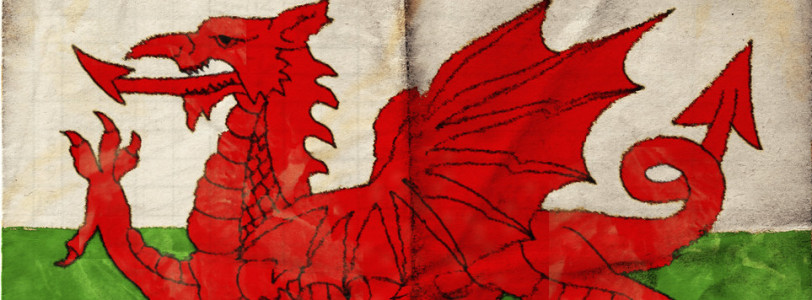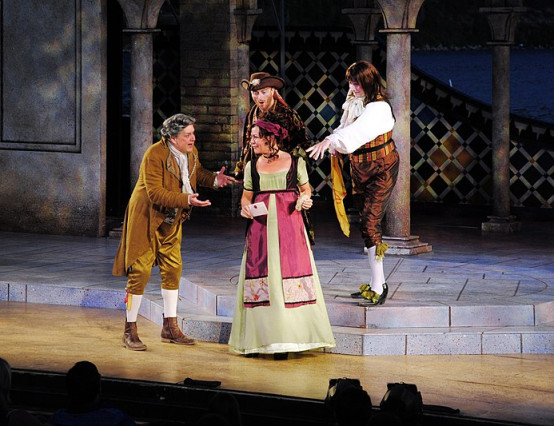As a native English speaker, I’ve never had to feel concerned or afraid about the future of my language. But in many places around the world today, the extinction of languages sits grimly on the horizon and native speakers grow evermore a minority. According to the National Geographic Society, out of more than 7000 languages in existence, one dies every 2 weeks, taking so much culture, identity and history with it.
So for a language that’s spoken right around the corner from me I wanted to know how many people actually speak Welsh and is it predicted to die out anytime soon? With English being the vastly predominant language of the UK, why is it essential we keep our linguistic diversity and invest in keeping languages alive?
Of an approximate 3.15 million population in Wales, census data shows the Welsh language is on the rise. The pattern shows an increase in Welsh speakers, from only 17.9% speakers in the 1981 census, to 20.3% in the 2001 census. The 2011 result showed a slight drop from the previous decade to 19% (equating to 562,000) but overall, we are seeing an increase in the language’s popularity and attitudes are changing towards the importance of Welsh within society.
The Annual Population Survey that is conducted also follows an increase from March 2010 (25.2%, 731,000) to September 2020 (28.8%, 872,200).
Helped by intervention from activists – such as the Cymdeithas yr Iaith Gymraeg (the Welsh Language Society) – and politicians, the language is being pushed to become much more commonplace, and education with Welsh-medium learning is growing in demand. By 2050, the Welsh government hopes to reach a target of 1 million speakers of Welsh. The government is really passionate about the linguistic survival of the language and are committed to protecting and reviving this wonderful language that holds so much history.
“Each language is a uniquely structured world of thought, with its own associations, metaphors, ways of thinking, vocabulary, sound system and grammar – all working together in a marvellous architectural structure, which is so fragile that it could easily be lost forever”.
Christopher Moseley
I spoke to a friend, Pamela Clarke, from Glamorgan, South Wales and asked what her experience had been with the language, having grown up in Wales in the 50’s and 60’s. She replied saying everyone had to learn Welsh at school but in her part of the country it wasn’t the dominant language. She didn’t grow up in a “Welsh-speaking area” and most people spoke mainly English. “A lot more [Welsh was spoken] in North Wales than in South Wales.”
Pam’s parents could not speak Welsh. It wasn’t the language spoken at home. It was only her grandmother and great aunt who could speak it, from near Aberystwyth, Mid-Wales.
After learning it at school, she then chose to do her O-level in Welsh foreign language a year early, then native language Welsh O-level a year on. After which, she went on to take Welsh A-level. Pam became good at the language but now admits to having forgotten lots of it since moving to England at 18.
As she hears modern Welsh language spoken today, she also said it “almost sounds like pigeon English” with many English words finding their way into the Welsh vocabulary. An English person would be able to understand many cognates!
One of Pam’s most prominent memories of using Welsh in her community was on St David’s day, when the houses of the school would compete in an Eisteddfod: a competition for music, poetry and the arts. This, she reminisced, was “very special within our school”. People would dress up in Welsh clothing and leeks and daffodils would be held. Poetry reading, choral speaking and singing competitions were all done in Welsh and this found the language being continued through arts and literature.
We then went on to discuss the great sense of pride Pam felt there was in Welsh people for their heritage with things like St David’s day, perhaps more so than in England. This links also to a competitiveness between English and Welsh people (especially when it comes to rugby!) that she feels is apparent in society, possibly boiling down to when Wales was subjugated by England many years ago.
Today, the Welsh language is being propelled forwards and financially fuelled to save it from extinction, to revive and protect it from endangerment – a state it was heading towards for a long time. The efforts of the Welsh government to preserve Welsh has been cited as a success story by many, with other countries wanting to copy their model of preservation which includes things like Welsh-medium education and media representation of the language.
Pam reflected on there being a surge in the learning of Welsh since her time in the country, particularly in nursery schools and junior schools. She said there has been an increase in Welsh-medium schools where lessons are taught in Welsh and mentioned teachers have even been sending home CDs for the pupils whose parents can’t speak Welsh to carry on the learning at home. As well, Pam talked of adult classes of Welsh being oversubscribed. The popularity of Welsh is definitely growing.
It can be said that in lockdown, rates of those wanting to study Welsh have dramatically increased. Welsh is also the fastest growing language in the UK, according to education app Duolingo. However, it is a notoriously difficult language to pick up for a native English speaker. Research says it is even harder to learn than Swahili and takes approximately double the amount of hours to master than French.
The conversation of safeguarding a language has sparked huge debate in many communities where there are minority languages. Some people view language preservation as imperative and crucial to retain cultural authenticity and values of identity but others argue the money could be invested more usefully elsewhere. Is it really worth clinging on to arguably a language of the past or should it be more important to invest in other things?










It's very difficult from the outside looking in to understand how much Welsh means to its native speakers. So much of its culture and history that was otherwise lost, survives so long as the language survives and is maintained by its people. Really interesting point about all the words it's grafted from English and north Wales feeling fiercely about it and the south being generally less interested but I think regardless of whether it becomes mainstream or not, it's an important keystone in the welsh identity and landscape.